Summary
Pickleball is the fastest-growing sport in America—and one of the most complex to manage for municipal recreation departments. This playbook outlines the core benefits and challenges of pickleball from a Parks & Rec perspective, and offers actionable strategies for building a sustainable program that balances demand, equity, and operational sanity.
Whether you're fielding your first few court requests or knee-deep in scheduling chaos, this report will help you tackle pickleball with ease.
The Pickleball Boom, Explained
What Is Pickleball? Pickleball is a paddle sport that combines tennis, ping-pong, and badminton. Played on a court roughly one-third the size of a tennis court, the game uses solid paddles and a plastic perforated ball. It’s easy to learn, low-impact, and highly social.
Why It’s Taken Over
- Accessible: New players can learn it in one session.
- Low-impact: Appeals to all ages, especially seniors.
- Social: Smaller court size encourages connection.
- Multi-generational: Grandparents can play alongside grandkids.
The Numbers
- Over 36.5 million players in the U.S. (and growing)
- Covered by ESPN and championed by celebrities
- Professional leagues and regional tournaments popping up everywhere
This isn’t a passing trend—it’s a cultural shift. And local governments are feeling the pressure.
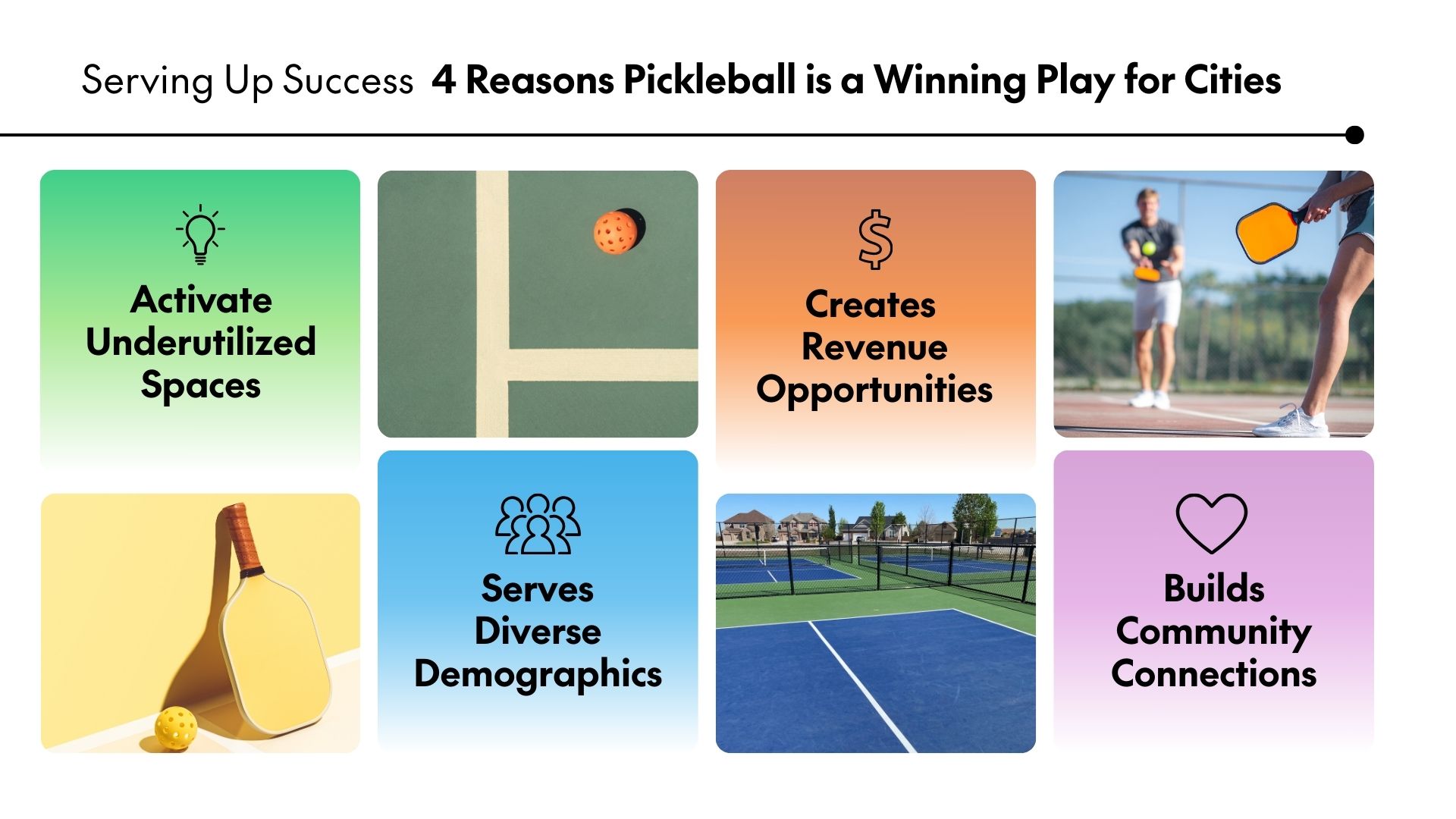
Why Your City Should Embrace Pickleball
- Resident Demand Pickleball consistently ranks among the top-requested amenities in city surveys. Its broad appeal makes it a key lever for community engagement.
- Facility Activation Cities are transforming underused assets—like aging tennis courts or concrete pads—into vibrant pickleball spaces. San Francisco has even explored courts on parking garages.
- Community Building Pickleball naturally fosters cross-generational and cross-cultural interaction, strengthening social cohesion at the neighborhood level.
- Revenue Potential With the right infrastructure, pickleball can generate revenue through:
- Court reservations
- Tournaments and events
- Private lessons
- League registrations
Challenges of the Pickleball Surge
Uncontrolled growth can lead to significant management headaches. Common problems include:
- Court Congestion: Overcrowded courts and no rotation system frustrate users.
- Tennis vs. Pickleball Tensions: Shared courts without scheduling clarity breed tension.
- Unauthorized Instructors: "Cowboy coaches" offer paid lessons without permits or insurance, creating liability.
- Information Gaps: Players are left in the dark about closures or schedules.
- Access Inequity: First-come systems can exclude working adults or marginalized groups.
- Staff Overload: Parks staff report spending up to 30% of their day fielding pickleball-related inquiries.
The Playbook: Operational Strategies for Sustainable Growth
1. Create a Clear, Balanced Scheduling System
Transparent scheduling is essential to equity and efficiency. Popular models include:
- Hybrid Systems: A mix of drop-in and reservation-based play
- Time Blocks by Skill Level: Prevents advanced players from dominating beginner-friendly times
- Sport-Specific Time Windows: Ensure tennis and pickleball get equitable use of shared courts
2. Modernize with Recreation Management Software
Stop relying on paper sign-ups or bulletin boards. Today’s players expect:
- Mobile court reservations
- Real-time visibility into court availability
- QR-enabled signage to view schedules
- Automatic alerts about closures or changes
Platforms like Rec Technologies can drastically reduce staff admin time, while improving the user experience for players.
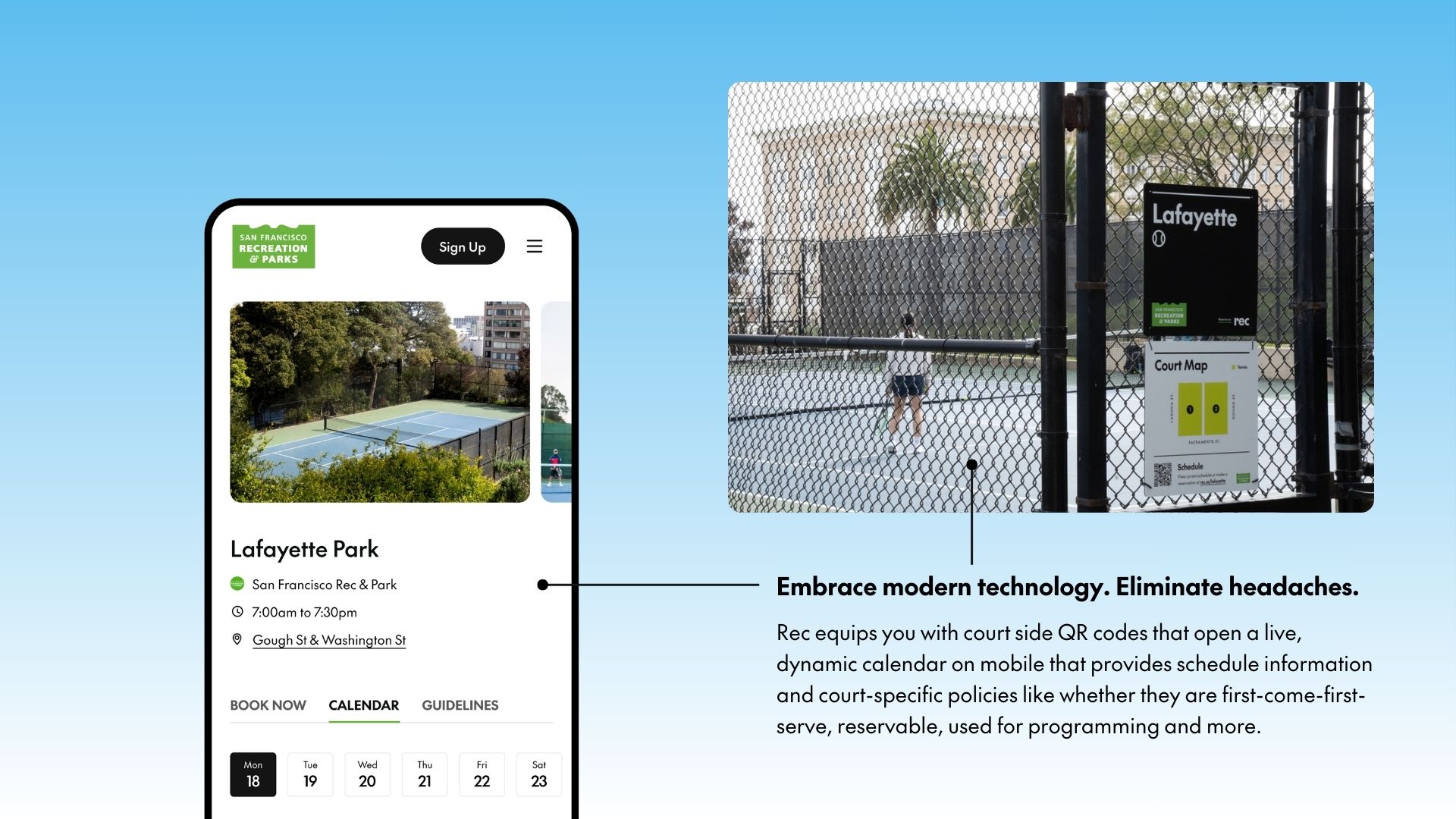
3. Formalize Coaching Through Licensing
Rather than fighting unauthorized instructors, embrace and regulate them:
- Require permits, background checks, and insurance
- Establish set coaching hours that don’t interfere with open play
- Use a rev-share model to generate revenue while keeping pricing fair
- Guarantee quality by maintaining a list of approved instructors
This creates structured, high-quality programming and turns passive facilities into active hubs.
4. Design for Multi-Sport Flexibility
When retrofitting or building new courts, prioritize:
- Dual-striping with distinct colors
- Removable nets
- Sound-dampening fences or panels
- Seating and shade to encourage spectators and community gatherings
5. Invest in Community Programming
Strong programming builds stronger communities. Consider:
- Beginner Clinics: Onboard new players with proper technique
- Leagues: Foster friendly competition
- Tournaments: Showcase facilities and draw tourism
- Skill-Level Time Blocks: Improve user experience and fairness
Using Tech to Transform Pickleball Management
A modern recreation management platform offers end-to-end visibility and automation to enable staff and residents to have the best experience:
Features You Should Prioritize:
- Real-time court availability dashboards
- Self-serve reservations for residents
- Automated notifications and cancellations
- Instructor licensing and scheduling tools
- Revenue tracking and reporting
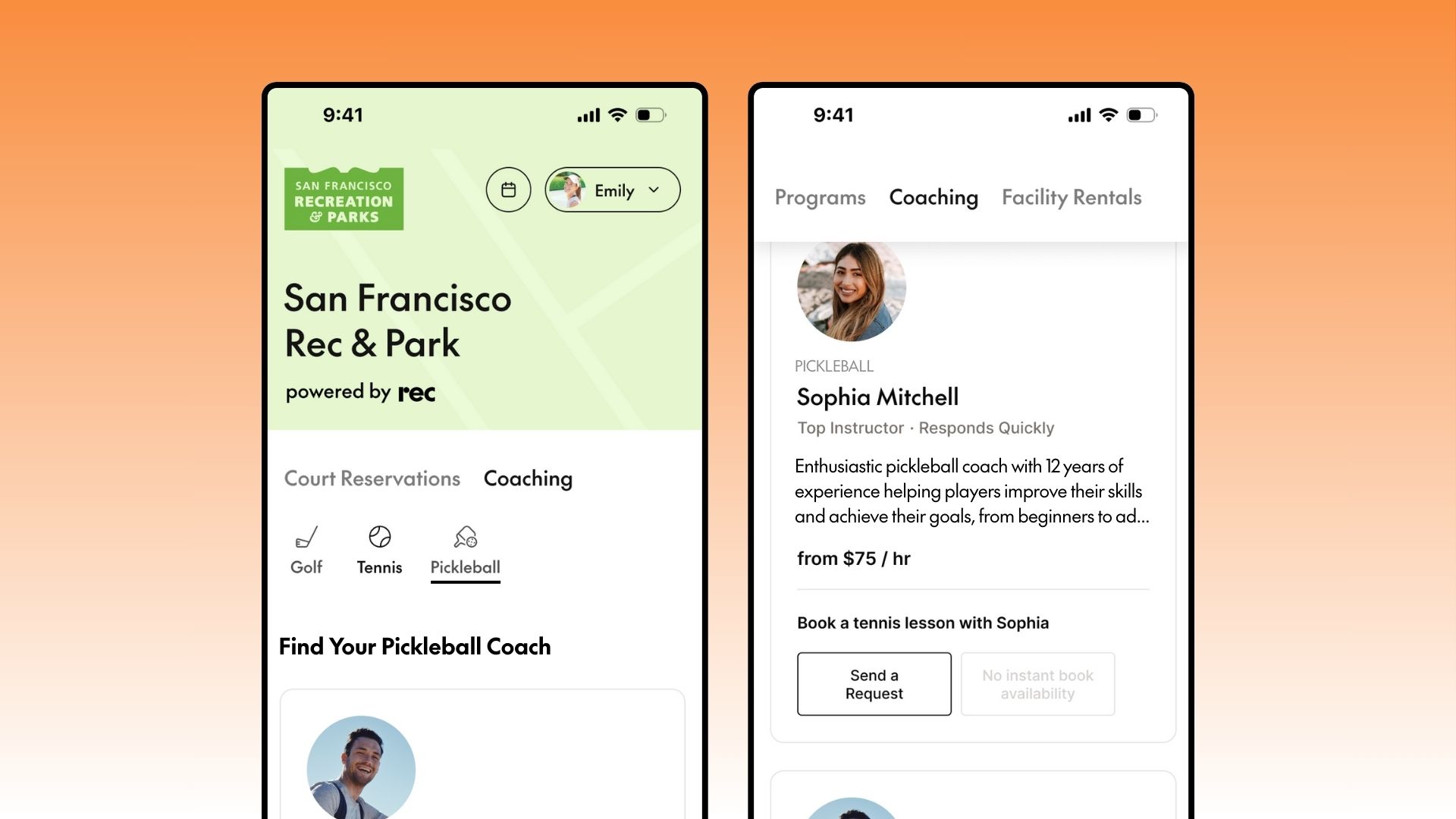
Rec Technologies partnered with San Francisco to expand opportunities for play. They saw:
- $1.1M in incremental revenue growth
- 28 new racquet sport court activations
- An increase in resident participation—they can now serve 4,000 residents weekly
Your City’s Next Big Win
Pickleball is here to stay. Cities that plan thoughtfully and manage proactively will:
- Engage more residents
- Generate new revenue
- Create welcoming, active public spaces
- Reduce staff burnout
It’s not about keeping up—it’s about getting ahead. With smart policies, the right partners, and the right tools, pickleball can become one of your department’s biggest wins.
Ready to Upgrade Your Pickleball Program?
Let Rec Technologies help you simplify scheduling, reduce admin chaos, and build instructor programs—so your department can focus on what matters: building strong, thriving cities.

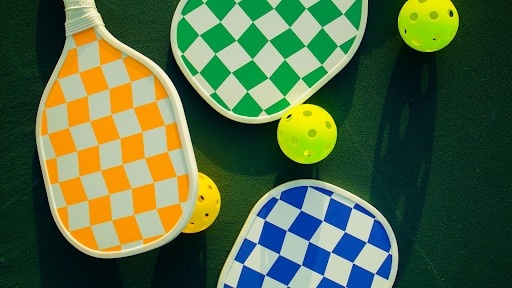
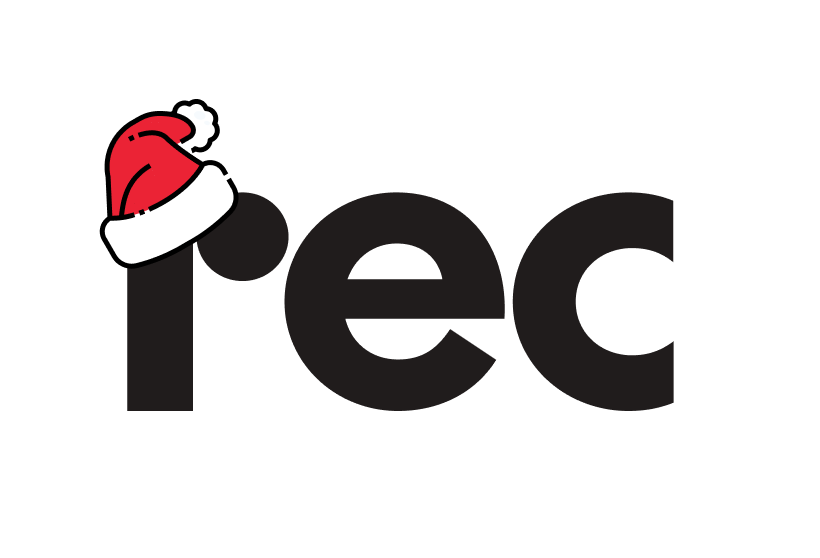
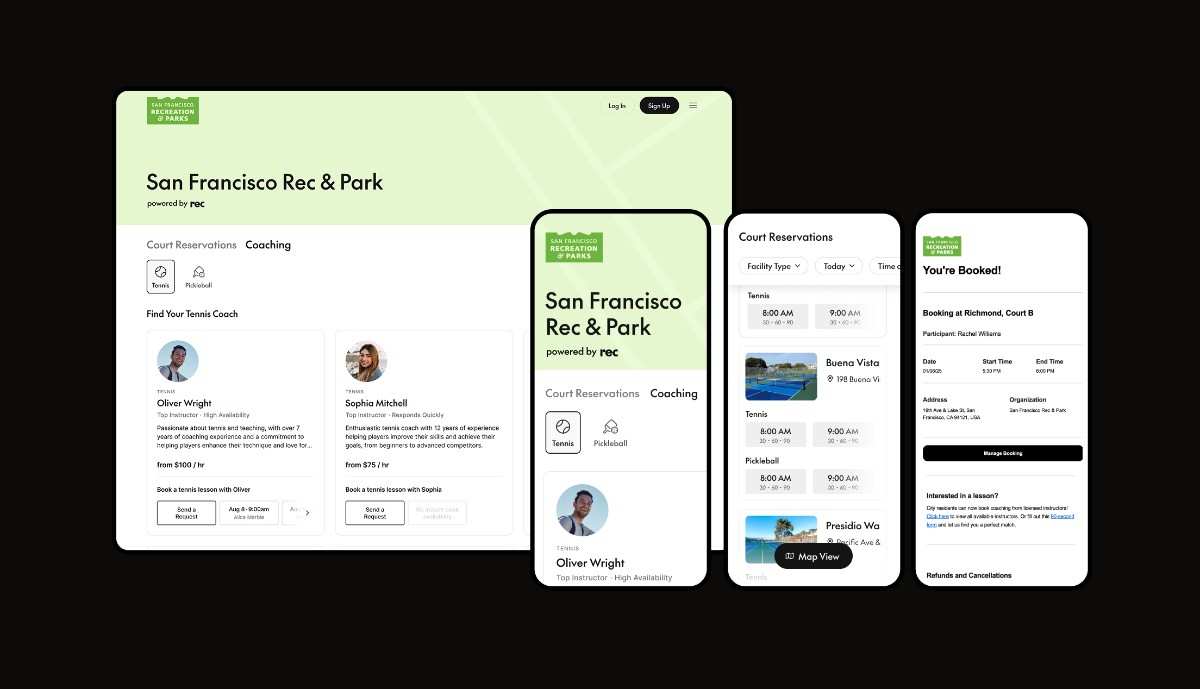
%20(1).jpg)